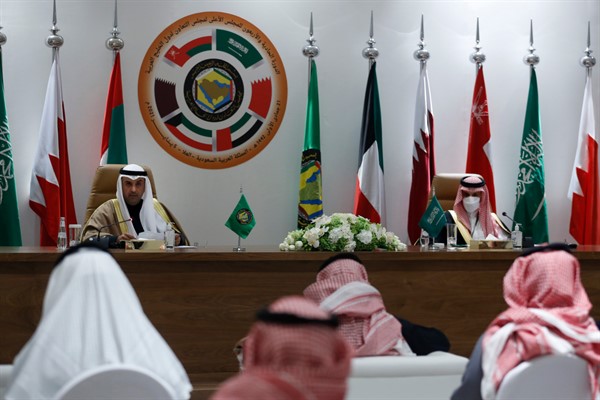Flights between Saudi Arabia and Qatar are resuming this week and the land border has reopened between the two countries—signs of a thaw in relations after three and half years of acrimony. Last week, Saudi Arabia, the United Arab Emirates, Bahrain and Egypt agreed to end a travel and trade blockade they had imposed on Qatar in 2017. Those four countries, calling themselves the “anti-terror quartet,” had accused Qatar of supporting radical Islamist groups, among other charges.
The crisis had divided the six-member Gulf Cooperation Council, or GCC, and the United States had lobbied extensively for an end to the blockade. But according to Sanam Vakil, the deputy director of the Middle East and North Africa Program at Chatham House in London, there remains a lot of work to do for the GCC to rebuild trust and address the disputes that caused relations to break down in the first place.
This week on Trend Lines, Vakil joins WPR’s Elliot Waldman to discuss the lingering divisions and mistrust among Gulf countries. Click here to read a transcript of an excerpt from the interview.
Listen:
Download: MP3
Relevant Articles on WPR:
Are Saudi Arabia and Its Gulf Neighbors Close to Ending the Qatar Boycott?
What Does Disarray in the Gulf Mean for the GCC?
Qatar’s Exit From OPEC Could Exacerbate a Rift Among Its Members
Turkey Rolls the Dice by Supporting Qatar in Its Feud With Saudi Arabia
Trend Lines is edited by Peter Dörrie, a freelance journalist and analyst focusing on security and resource politics in Africa. You can follow him on Twitter at @peterdoerrie.
To send feedback or questions, email us at podcast@worldpoliticsreview.com.




